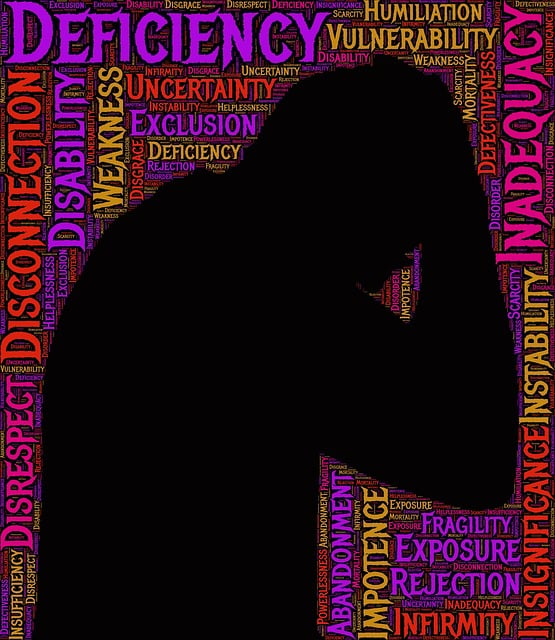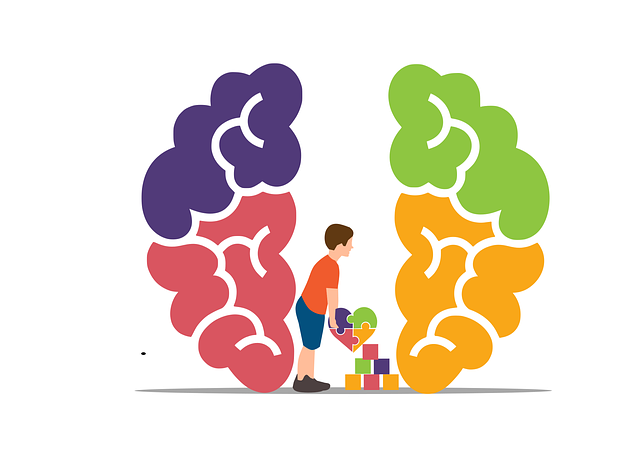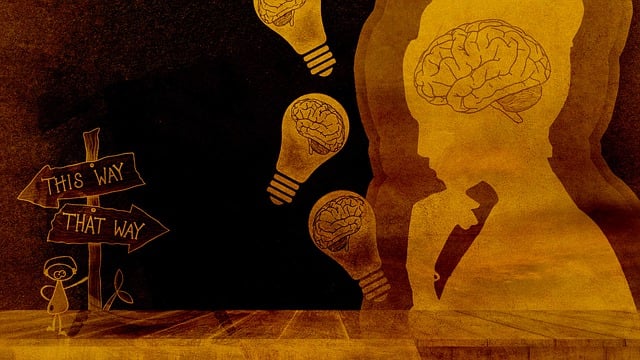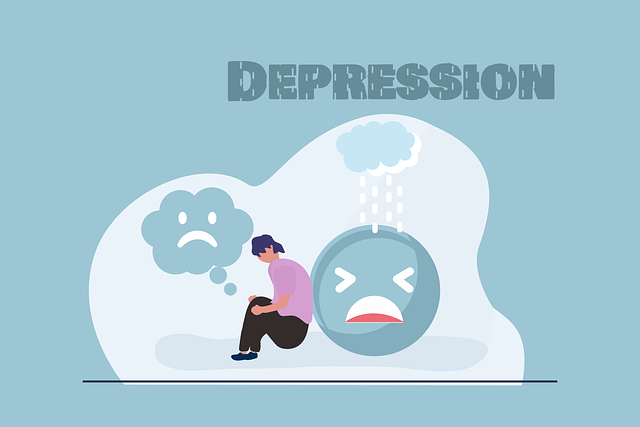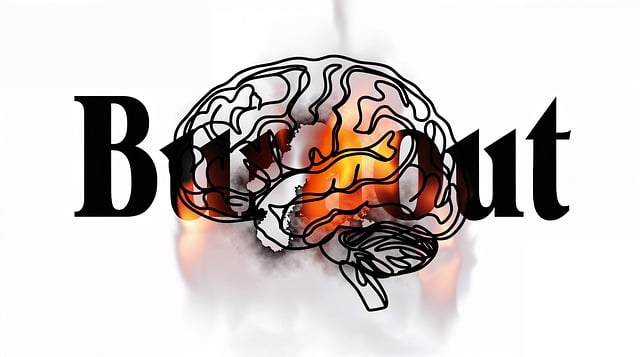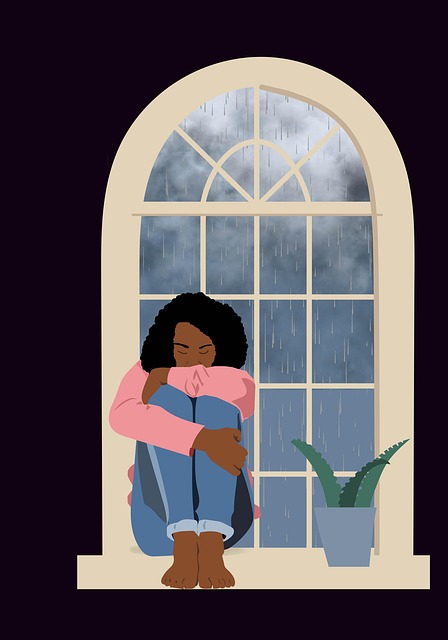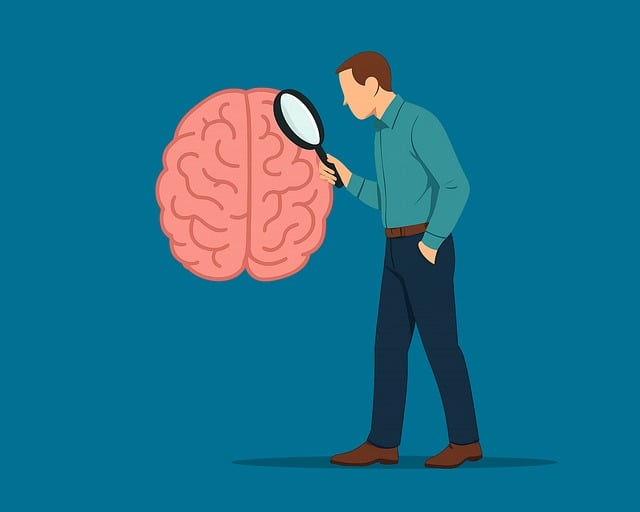In today's diverse society, there's a growing need for inclusive mental wellness support, particularly for LGBTQ+ individuals. Digital apps designed with transgender and non-binary users in mind offer personalized self-care, safe spaces, and access to specialized therapists, incorporating empathy-building strategies and trauma support. These apps, developed with user feedback and expert input, aim to bridge gaps in available support. Public awareness campaigns can further enhance their impact by promoting understanding and acceptance. Highlands Ranch Gender-Affirming Care Therapy principles guide these apps in creating inclusive digital spaces that cater to emotional and practical needs through tools like stress reduction, mindfulness exercises, and crisis intervention guidance. Privacy, data security, inclusivity, and ethical considerations are paramount for app developers, while innovative marketing strategies help them stand out in a competitive market by highlighting unique features and engaging users through community dialogue and continuous improvement.
In today’s digital age, mental wellness apps offer a crucial resource for individuals seeking support. However, ensuring these tools are inclusive and address the unique needs of diverse populations, such as affirming gender identities, is essential. This article explores the development of a groundbreaking mental health app inspired by Highlands Ranch Gender-Affirming Care Therapy principles. We’ll delve into key considerations like design, functionality, privacy, marketing, and engagement strategies, providing a roadmap for creating effective, inclusive digital therapy solutions.
- Understanding the Need for Gender-Affirming Mental Health Apps
- Designing an App with Highlands Ranch Care Principles
- Key Features and Functionality for Effective Therapy
- Ensuring Privacy, Security, and Ethical Considerations
- Marketing and User Engagement Strategies for Success
Understanding the Need for Gender-Affirming Mental Health Apps

In today’s diverse society, there is a growing recognition of the unique challenges faced by individuals who identify as part of the LGBTQ+ community in seeking mental wellness support. This understanding has prompted the need for more inclusive and gender-affirming care within the digital realm. Apps designed with specific consideration for transgender and non-binary users are gaining prominence, offering tools tailored to their experiences. By incorporating features like personalized self-care routines, safe spaces for expression, and access to specialized therapists, these apps aim to bridge the gap in available support.
The development of gender-affirming mental health applications goes beyond basic functionality; it involves empathy-building strategies and trauma support services. Incorporating user feedback and engaging with experts in the field ensures that these apps meet the complex needs of their target audience. Additionally, public awareness campaigns can further enhance their impact, educating a broader audience about the specific issues faced by LGBTQ+ individuals and promoting understanding and acceptance, ultimately fostering an environment where everyone feels comfortable seeking help.
Designing an App with Highlands Ranch Care Principles

When developing a mental wellness app, adhering to principles like those promoted by Highlands Ranch Gender-Affirming Care Therapy can significantly enhance its effectiveness and user appeal. This approach emphasizes creating safe, inclusive, and supportive digital spaces that cater to diverse needs. Incorporating features that support self-care practices, inner strength development, and risk management planning for mental health professionals ensures the app caters to both the mind and the heart.
By integrating these principles, app designers can foster environments where users feel understood and empowered. This includes implementing tools for stress reduction, mindfulness exercises, and mechanisms for tracking progress. Additionally, promoting self-reflection and encouraging open communication within the app’s community can strengthen its therapeutic benefits. Such a holistic approach not only addresses symptoms but also equips users with the skills to navigate life’s challenges with resilience and confidence.
Key Features and Functionality for Effective Therapy

In developing a mental wellness app that offers effective therapy, especially tailored to meet the unique needs of individuals seeking Highlands Ranch Gender-Affirming Care, several key features and functionalities stand out as essential. Firstly, the app should incorporate crisis intervention guidance, providing users with instant access to resources and strategies for managing acute stress or suicidal thoughts. This can be in the form of guided breathing exercises, emergency contacts, and self-help tools.
Additionally, promoting emotional well-being through user-friendly interfaces that encourage regular reflection and journaling can significantly enhance the app’s value. These features allow users to track their moods, set achievable goals for mental health management, and access personalized recommendations based on their inputs. For mental health professionals using the app to assess clients, risk assessment tools are crucial—they help identify potential hazards and facilitate timely interventions, ensuring a safer environment for both therapist and client during virtual sessions.
Ensuring Privacy, Security, and Ethical Considerations

In the realm of mental wellness app development, ensuring privacy, security, and ethical considerations is paramount. As users share intimate details about their emotional well-being, developers must implement robust data protection measures to safeguard sensitive information. This includes employing end-to-end encryption for all communications and storing data securely with regular audits to prevent breaches. Highlands Ranch Gender-Affirming Care Therapy apps should also adhere to strict consent protocols, giving users complete control over their data sharing.
Moreover, ethical considerations extend beyond privacy. Developers must foster a culture of respect and inclusivity, reflecting the diversity of mental health experiences. This involves designing apps that are accessible to all, including those with disabilities, and promoting therapeutic approaches like stress management and resilience building without perpetuating harmful stereotypes or reinforcing the stigma surrounding mental illness. By prioritizing these ethical dimensions, developers can create safe digital spaces that support positive mental health outcomes for users across various backgrounds.
Marketing and User Engagement Strategies for Success

In the competitive landscape of mental wellness apps, successful marketing and user engagement are paramount to stand out. One effective strategy is to highlight unique features that cater to specific needs, such as Highlands Ranch Gender-Affirming Care Therapy, appealing to diverse user groups. By focusing on innovative approaches like this, apps can attract users seeking tailored solutions for their mental health journeys. Moreover, integrating Depression Prevention and Resilience Building techniques into the app’s core curriculum enhances its value proposition, ensuring users not only find support but also learn practical tools to manage and improve their well-being.
Engaging users involves creating a community that fosters open dialogue and peer support. Incorporating features like user forums, success stories, and progress tracking encourages active participation. Teaching Mind Over Matter Principles through interactive content keeps users invested in their mental wellness journey. Regular updates with new content and features not only keep users engaged but also demonstrate the app’s commitment to continuous improvement and staying relevant in the ever-evolving digital health landscape.
The development of mental wellness apps, particularly those centered around Highlands Ranch gender-affirming care therapy, presents a unique opportunity to reach and support diverse individuals. By integrating key features like personalized treatment plans, secure communication channels, and inclusive design, these apps can revolutionize access to mental health services. Adhering to ethical guidelines and prioritizing user privacy ensures trust, encouraging open dialogue and fostering positive mental health outcomes. With effective marketing strategies targeting at-risk populations and engaging users through interactive content, mental wellness apps have the potential to become indispensable tools in the digital age, offering accessible, gender-affirming care to those who need it most.

